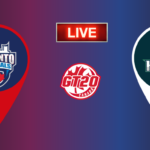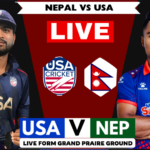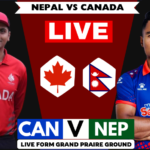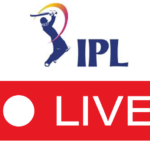To everyone, the preparation for government jobs and public service is like an iron fist. The pass rate and reservation in the public sector are currently dropping owing to the broad field and lengthy curriculum. The public service has recently advertised for more than 9,000 local personnel. For students who are enthusiasts and preparing for public service, we will go through how to undertake public service in depth. When studying public service, you should follow the ‘Seven S method. Whatever the level, aim, or theme, the same formula should be employed.
Contents
The curriculum is the content. What should be read in the curriculum, and what kinds of questions should be asked?
What is the meaning of the content in it after you understand the notion content? What does the definition entail? How did it all begin? What happened during the revolution? What are its measurements?
The features of the subject we are studying might include a variety of concepts such as policy, organizational structure, and legal system. It is critical to understand the scope of the issue being examined. There are several dimensions, kinds, and variations. They should be aware. The test questions will be based on the syllabus. The curriculum is not derived from other sources.
What is the current situation of the subject, the present problem? Such topics are not included in the curriculum. You must be conscious of the present circumstances in order to be powerful. If we’re studying civil service, for example, we should look at globalization, inclusive civil service, civil service and e-governance, and civil service and other services. The research should be conducted not just in one’s own nation but also in the global environment.
After reading all of the subjects, the student should be able to investigate each one independently. You must be capable of self-analysis. Problems, obstacles, weaknesses, and strengths, among others You must continue to practice both theoretical and practical elements. We need to consider the options. In a thematic setting, comments are critical.
For quick writing, use the ‘Seven S’ method.
Leave right-left margins when writing short or long responses, have a solid title, retain subtitles, paraphrases, and bullets.
The article’s introduction should be strong. The most important thing in journalism is to write first. First impressions must be positive. You must concentrate while reading this.
The essay should be written in a variety of styles. Keeping a bullet, for example, neat and appealing. Good spelling and precision are required.
Given the competitive nature of the exam, several techniques should be employed. Organizing data in boxes, creating various images and graphs, and occasionally use jargon and words. To emphasize, articles are a type of fashion. The format should be written in conjunction with one another.
The question’s breadth is obscured. You must understand the question’s underlying meaning. For example, the question of what has to be done to make Nepal’s journalism sector more effective is now unanswered, and the breadth of how to improve it is obscured. The required scope, not the known scope, should be provided.
The answer to a query is size. The size of the answer to the question should be determined by the number of points that may be earned in the time allotted. Don’t write too many numbers in a row, or too few numbers in a row.
The article should have a positive tone. The passive voice should outnumber the active voice. Indirect intellectual clearances are required. Conclusions that are positive should be offered. But, regardless of the notion, you must enter the pool to swim.
How do you study?
Everyone who learns does so in their own unique way. Everyone who has progressed to the point of preparing for public service has a background in education. So there is no such thing as reading; this is the only way to read. However, as part of my preparation for public service, I am sharing the concerns that I have been following.
How should objective questions be prepared?
- Reading a book based on the primary foundation is preferable.
- First impressions. Not to be outdone, of course. Make fresh, unexpected, and significant data or subjects stand out.
- Make a note of the remaining subject to remember when you read it a second time.
- In the BKVMBLM, write down some of the information that has to be remembered. This makes it easier to recall important information.
- When taking notes, keep them short and simple.
- Do not rely only on the work of one author.
- Sitting down and talking with classmates is appropriate. When drafting objective questions, group discussions are beneficial. There are several sorts of friends as well.
- Curriculum-based preparation is recommended. The time allotted to the subjects in the syllabus should be proportionate. Most of my friends, for example, devote less time to geography and history and more to other disciplines.
- Classes for preparation are also useful. One grows accustomed to managing time in the tests when taking the practice exams.
How do topic questions be prepared?
- The content should be thoroughly examined. A thorough understanding of the subject is necessary.
- Definition and meaning: Make a few of notes that make you unhappy. Please pardon me for creating a simple definition on the topic. As a result, you should never be unsure about what to write in the opening paragraph of any test question. If one understands the definition and meaning of a subject, one can get to the point where they can solve the issue even if they don’t know much about the remainder of the subject.
- To analyze a subject’s current status, including its strengths and flaws. Make a to-do list.
- To assess the significance, qualities, and goals of a subject. These themes appear to be the same, however sentence form should be considered when composing the answer.
- To examine national and international agreements, possibilities, issues, difficulties, and solutions initiatives. The major focus of research is on these foundations.
- To have a better understanding of such topics, read as much as possible the constitution, act, regulations, government policies, government periodic plans, government policies and programs, yearly budget, and different official bulletins.
- For current information, it is preferable to read connected newspapers on a regular basis. The sentence form, the structure of the analysis, and the logical aspect of the editorial portion can all be seen when reading the newspaper.
- Attending preparatory classes is beneficial.
How do you respond to theme questions?
- What is the content’s introduction? How to write the definition in a unique and imaginative manner.
- The introduction should be brief, formal, and unique. If you’re writing on the right to information, for example, start by writing your own definition. Make a list of the definitions for the second constitution. The Right to Information Act specifies number three. Writing such a definition demonstrates both its uniqueness and genuineness.
- The writing style should be katchagatgachabh. When asked about the provisions for dealing with any issue in Nepal, for example, what is in the constitution, what are the legal provisions, what are the policies, what are the institutional provisions, how is it included in the periodic plan, and what is the yearly budget provision? It is preferable to discuss issues such as Rs. and What are the programs like?
- The sentences should be made shorter. Even while writing in Dyagibhat, it’s a good practice to compose as many complete sentences as possible.
- Producing a few simple phrases is preferable to making a lot of words.
- To restate your main point in the end. Write the conclusion based on the main part’s theme, but skip the summary.
- Letters should be as simple and straightforward as possible.
Conclusion
Finally, Remember what occurred previously. Start today if you’re interested in joining the civil service. Giving time is not tough. It is more difficult for people who are unable to give time. The most important factor is how much time is available, how much money can be read, and whether or not it can be continued. Many of my Campus Gold Medalist friends have failed in the first round, while those who pass with a low percentage pass. I never succeeded after failing the exam and giving up reading.
Patience, perseverance, and effort, in my opinion, are the keys to success. Welcome to the civil service, please.






